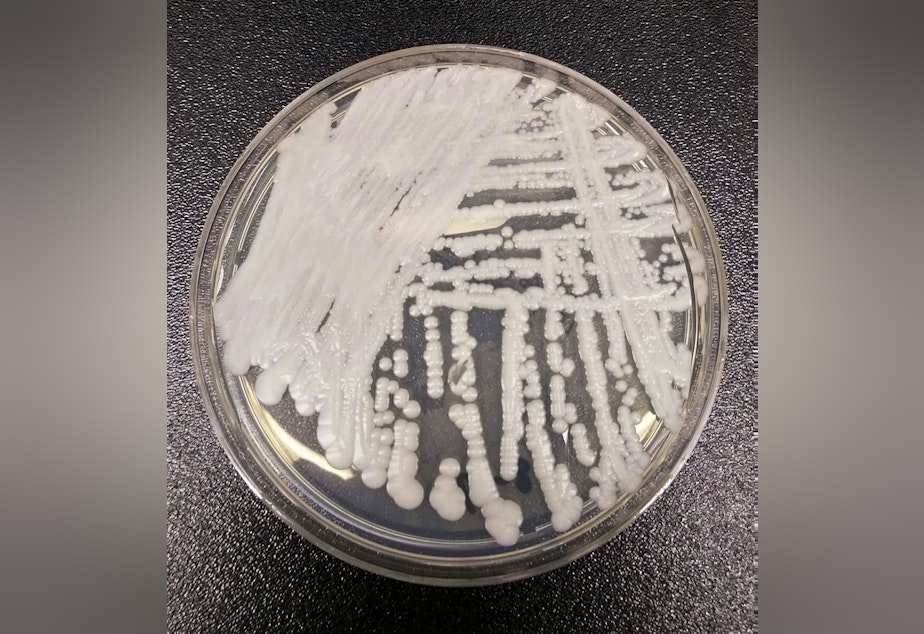Potentially deadly fungus found at Seattle hospital. What to know before you panic

Four people with links to Kindred Hospital Seattle have now tested positive for a potentially deadly, drug-resistant fungus.
But you should read on before you panic about a widespread outbreak à la “The Last of Us.”
“The outbreak is not a big concern for the general public,” said Meagan Kay, the deputy chief of Public Health – Seattle & King County’s Communicable Disease Epidemiology and Immunization Section.
So, what did they find exactly, and why is it noteworthy?
The fungus is called Candida auris, a type of yeast known to spread easily among patients in health care facilities.
Another case of C. auris was discovered in July in a patient from Pierce County who was admitted to Kindred Hospital. This current outbreak includes four cases. Three were screened and identified at Kindred. A fourth patient who was screened at a facility in Snohomish had previously received care at Kindred.
RELATED: Washington's first case of potentially deadly fungus found in Pierce County
Sponsored
People who are infected don’t always show symptoms, and, according to the Centers for Disease Control and Prevention, there isn’t even a common set of symptoms specific to C. auris infections. Symptoms depend on the location and severity of the infection, which can be in different parts of the body, including open wounds, ears, and the bloodstream, where it can be dangerous, according to the CDC.
It’s so elusive, that this is the first known locally acquired case of the fungus in Washington state.
About 5-10% of patients “colonized” with the fungus will eventually become seriously ill. “Colonization” is the fancy medical term for people who have the fungus on their body but who may not have an infection, according to the CDC. People can be “colonized” by the fungus and spread it to other people and surfaces.
Three of the people found to have the fungus are not showing symptoms, according to Meagan Kay with Public Health – Seattle & King County. Therefore, they are considered “colonized” but not currently infected. The fourth patient is infected, though, and the other three could become infected over time.
Of those with invasive infections, though, more than one-third of patients with an infection could die, Kay said.
Sponsored
She noted the four cases identified are linked to Kindred Hospital, the state’s hospital long-term acute care facility. That’s important because a C. auris infection can be particularly dangerous for patients who have complex medical conditions and who use medical devices, Kay said.
According to the CDC, people with breathing and feeding tubes or catheters may be especially susceptible to infection.
“The reason why Public Health is responding and is concerned about this is because it spreads so easily in health care environments and because it can be difficult to treat,” Kay said.
C. auris is often resistant to commonly used antifungal medications, according to the CDC, and some strains have even been resistant to all three main classes of antifungal medicines. In other words, some cases are extremely difficult to treat.
But let’s go back to the part about not panicking.
Sponsored
RELATED: 'The Last Of Us' made us wonder: Could a deadly fungus really cause a pandemic?
“For the average person, the average healthy person, there isn't anything in particular to do or to be concerned about,” Kay said. "We are responding quickly with our health care facilities to make sure that the appropriate infection-prevention measures are in place to minimize spread as much as possible.”
She also noted that the fact that Kindred Hospital caught these cases is good news.
She said cases of C. auris infections have been rising nationally. In fact, health officials have expected to find the fungus in Washington state eventually, according to a blog post on the health department’s website. To better prepare, the hospital has partnered with the CDC and state and local agencies to proactively screen patients.
“The only reason these patients were identified this early was because of this partnership,” Kay explained. “Kindred Hospital is screening, which is basically testing, every new admission to their hospital, as well as periodically testing every inpatient in their hospital.”
Sponsored
Other facilities do not screen patients proactively, meaning there could be cases that have not been detected.
And it makes sense for Kindred Hospital to screen for C. auris because of the nature of the patients the hospital works with – patients who need extra care.
In the meantime, the patients who have been identified with the fungus are being closely monitored, and health officials are trying to ensure the infection doesn’t spread further.
You can read more about how these cases were found and what this means on the Public Health Insider blog.
Correction notice, 1:30 p.m. on Thursday, 2/1/2024: This story previously stated that the four patients in the current outbreak of C. auris included a patient identified in July. That patient is not included in the current outbreak. The story has been updated.




